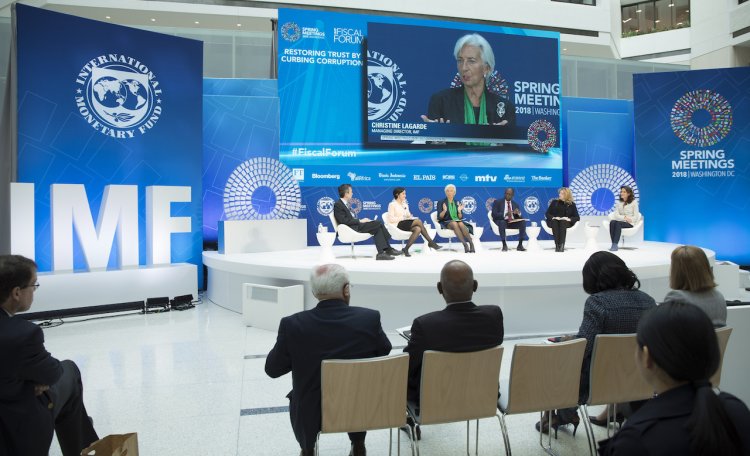The most prominent issues on the table of the meetings of the International Monetary Fund and the World Bank

On Monday, October 9, 2023, the city of Marrakesh in Morocco hosted the annual meetings of the World Bank Group and the International Monetary Fund in 2023.
The meetings are scheduled to continue until October 15, and bring together central bank governors, finance and development ministers, senior officials from the private sector, representatives of civil society organizations, and academics.
Issues on the table
This year's meetings are expected to discuss the reform of international financial institutions and the work required to eradicate poverty on a livable planet, in addition to exploring effective solutions to global challenges, including job creation, digital infrastructure, and addressing climate change, in addition to ways to achieve the goal of eliminating... Poverty.
The program of the annual meetings of the World Bank and the International Monetary Fund includes a number of side events, which will be devoted to discussing many important topics, including the energy crisis, climate challenges, migration, international cooperation, post-Covid-19 recovery, and political and economic developments at the international level.

Meeting agenda
This huge global event will bring together more than 14,000 participants from all over the world, including 4,500 representatives of a total of 189 official delegations led by finance ministers and central bank governors, according to organizers.
These meetings are an important opportunity to discuss global economic stakes, development challenges, poverty eradication, and the effectiveness of aid and financing policies in a context characterized by a sharp slowdown exacerbated by escalating geopolitical tensions, as well as discussing other issues such as ways to enhance job opportunities, digital infrastructure, and climate action.
Most prominent challenges
The IMF Director said in an introductory speech dated October 6 that the Covid-19 pandemic, Russia’s war in Ukraine, climate disasters, the cost-of-living crisis, and political instability are many aspects of a world vulnerable to shocks, noting that the recovery is still slow, and the pace remains slow. Current global growth is very weak, recording a significant decline from its average of 3.8% during the two decades before the pandemic.

The Director of the International Monetary Fund pointed out the stark differences in growth dynamics, as the momentum coming from the United States is increasing, and bright spots are emerging in India and several other emerging economies, but the slowdown prevails in most advanced economies, and even the Chinese economy is declining below expectations, commenting: “This leads to a widening gap in the size of economic wealth between and within various groups of countries.”
According to the Fund’s estimates, the cumulative global output losses as a result of successive shocks since 2020 amount to about $3.7 trillion until 2023, and these losses are unevenly distributed across countries.


 Shrouq
Shrouq 












